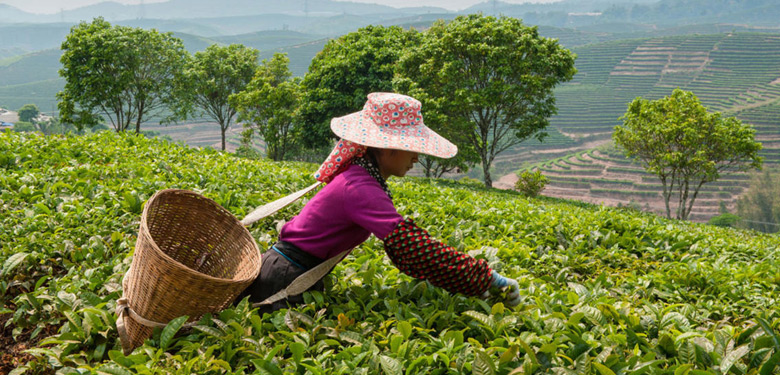
Responsible Agribusiness Roundtable Series – a discussion about inclusive, gender transformative agribusiness in Jakarta
Together with Louis Dreyfus Company Indonesia (LDC), CSR Asia organized the first session of a Responsible Agribusiness Roundtable series in Jakarta in August. More than 10 companies and organizations discussed opportunities for local agribusiness to engage with smallholder farmers and adopt inclusive and gender transformative business models. The findings of two recently published reports framed the roundtable agenda:
- Agribusiness and the SDGs: How the Agribusiness Sector in ASEAN can Embrace the Sustainable Development Goals
- Agribusiness in ASEAN: Making the Case for Smallholder Inclusion
Roundtable participants shared their current business models, identify opportunities for partnerships, map out next steps, set objectives and targets, and develop mechanisms to track progress. The discussion focused the unique position of the agribusiness sector to make an industry-wide contribution to the Sustainable Development Goals (SDGs), while prioritizing and addressing challenges with smallholder farmer inclusion and gender transformative business practices. All of which will only become possible by creating collaborative, long-term multi-stakeholder partnerships between government, the private sector and agricultural communities.
Figure 1 shows an example snippet from the roundtable presentation, showing how the Indonesian National Development Plan relates to the SDGs, and why it matters for agribusinesses.

Figure 1: The SDGs – Agribusiness and Indonesia
Companies realised that an integral part of becoming inclusive and proactive towards these issues is a change in perspective of how they understand gender and recognise the opportunities, value and influence that women hold within the agricultural industry either as producers, processors, employees, board members or consumers. Empowering women can spark a progressive and transformational change within the industry.
Representing 50% of Asia’s agricultural labour force, women are consistently under-served by inputs, training, and finance which can increase their productivity. While playing a crucial role within the smallholder system, they represent an ‘invisible’ labour force burdened by inflexible working hours, gender bias and hold a disproportionate responsibility for unpaid care-work, such as child-care, caring for elders, laundry, cooking etc.

Figure 2: Gender Ladder
Figure 2 above depicts the ‘Gender Ladder’ and indicates the common hierarchy of gender related mindsets in business. Many companies in Asia found out they are ‘gender blind’ and although there are instances where companies can create a positive impact for women, it is often achieved unintentionally. However, the potential return on investment for agribusinesses that prioritise gender equity and smallholder inclusion is immense. If gender equality is really a priority, then the sector could look beyond providing opportunities but to tackle issues of agency, control and decision-making head on. The sector could improve opportunities for women by enabling them to become more productive and competitive decision-making agents who participate in trade, add value to unique local resources, and contribute to local development.1
By increasing the involvement of women along major agricultural value chains, companies can take advantage of the opportunity to overcome constraints that hinder women’s economic empowerment, which is about transforming unequal power relations as well as the structures and norms (both visible and invisible) that uphold them.2 As opposed to gender responsive approaches, which address the need but not the cause of the need, changing the underlying causes of inequality can assist in reducing it. Modern businesses must address the key challenges to instilling a gender transformative approach within their operations and continually pull away from gender blind management and attitudes.
After the roundtable, confidence increased among participants ability to help their organization adopt its responsible business practices, include smallholders in its value chain, and implement gender transformative programmes.
Stay tuned for announcements about upcoming Responsible Agribusiness Roundtable’s in the Philippines and Cambodia. Provide your contact information here and we will contact you when more details about the upcoming roundtables become available.
Sign up for the CSR Asia Weekly Newsletter to gain more insights and learn about upcoming Events.
Recommended reading: